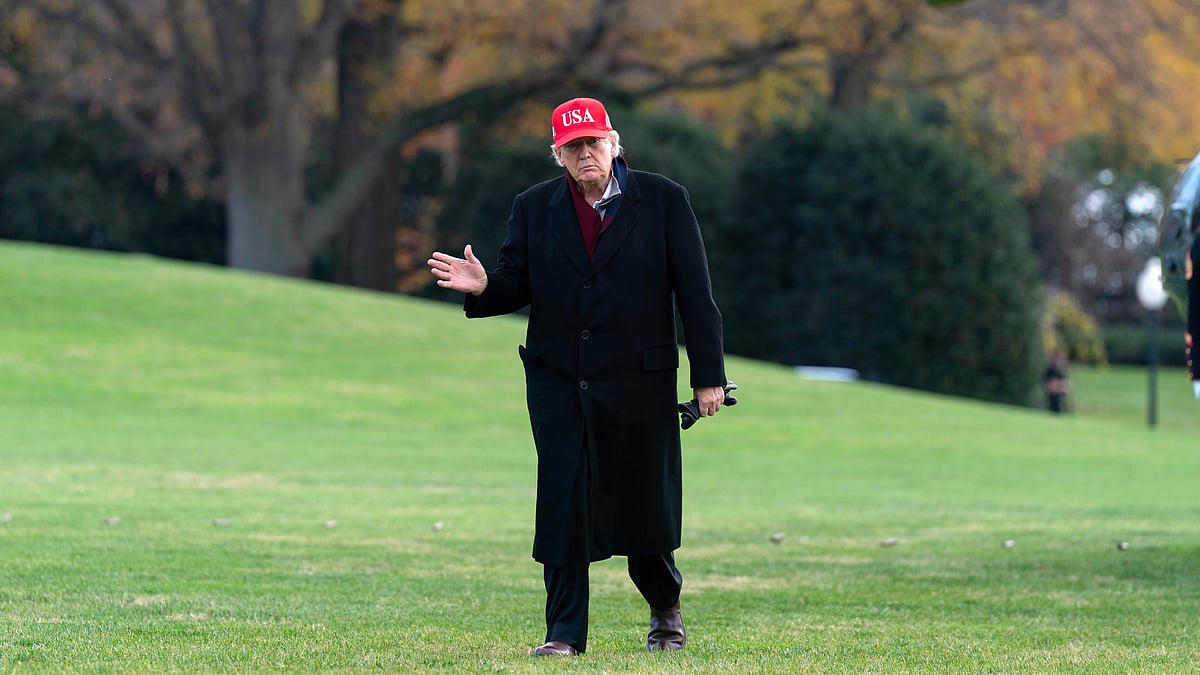World
Trump has ‘nuanced and commonsense opinion’ on H-1B visas: White House
The press secretary says Trump’s approach aligns with the needs of specialised modern manufacturing

US President Donald Trump holds a “very nuanced and commonsense opinion” on H-1B visas and firmly opposes the displacement of American workers, White House press secretary Karoline Leavitt said on Monday, seeking to dispel what she described as persistent mischaracterisations of his position.
Speaking to reporters in the West Wing, Leavitt emphasised that the President’s stance has been widely misunderstood. “The president does not support American workers being replaced,” she declared. Instead, she painted a picture of Trump as both a guardian of domestic jobs and a pragmatic steward of America’s industrial revival.
According to Leavitt, Trump’s approach recognises the realities of modern manufacturing — particularly in highly specialised sectors such as advanced batteries, chipmaking, and precision engineering. She said Trump believes that when foreign companies invest trillions of dollars to build cutting-edge facilities on American soil, they may initially need to bring in skilled foreign specialists to get these complex ventures off the ground.
Published: undefined
“But ultimately, he always wants to see American workers in those jobs,” she said, adding that Trump has repeatedly told foreign investors, “You’d better be hiring my people if you’re going to be doing business in the United States.”
Leavitt said this balanced approach aligns with Trump’s broader ambition to rejuvenate American manufacturing through tariffs, tough trade deals and incentives that have drawn “trillions and trillions of dollars” into the country — investments she said are creating “good-paying American jobs right here at home.”
Yet Trump’s nuanced stance has stirred unease within his own MAGA ranks, who have long demanded stricter curbs on immigration and voiced suspicion of the H-1B programme, alleging that it fuels fraud and sidelines American workers.
Facing that backlash, Trump recently doubled down on his belief that America must sometimes “welcome” highly skilled immigrants — particularly those capable of teaching US workers to master the intricacies of chips, missiles, and other sophisticated technologies. He acknowledged he may take “a little heat” from his base but insisted that America must not shy away from importing talent it does not yet possess.
Drawing attention to the wave of “extremely complex” manufacturing plants now rising across the US, Trump argued that such facilities cannot be staffed by “people off an unemployment line”, nor run by those who “don’t even know what a chip looks like.”
“If you have to bring people to get those plants opened, we want you to do that,” he said. “And we want those people to teach our people.”
The president has repeatedly defended the H-1B system as essential for fields where America lacks homegrown expertise, even as his administration maintains a hard line against illegal immigration.
Under US law, H-1B and L-1 visas allow companies to hire foreign professionals in specialised occupations — a system Trump’s critics within the MAGA movement argue is rife with abuse. But for the President, the path to a stronger technological future appears to lie in a blend of protectionism and openness, of guarding American jobs while inviting the world’s brightest minds to help build the nation’s next industrial leap.
With PTI inputs
Published: undefined
Follow us on: Facebook, Twitter, Google News, Instagram
Join our official telegram channel (@nationalherald) and stay updated with the latest headlines
Published: undefined